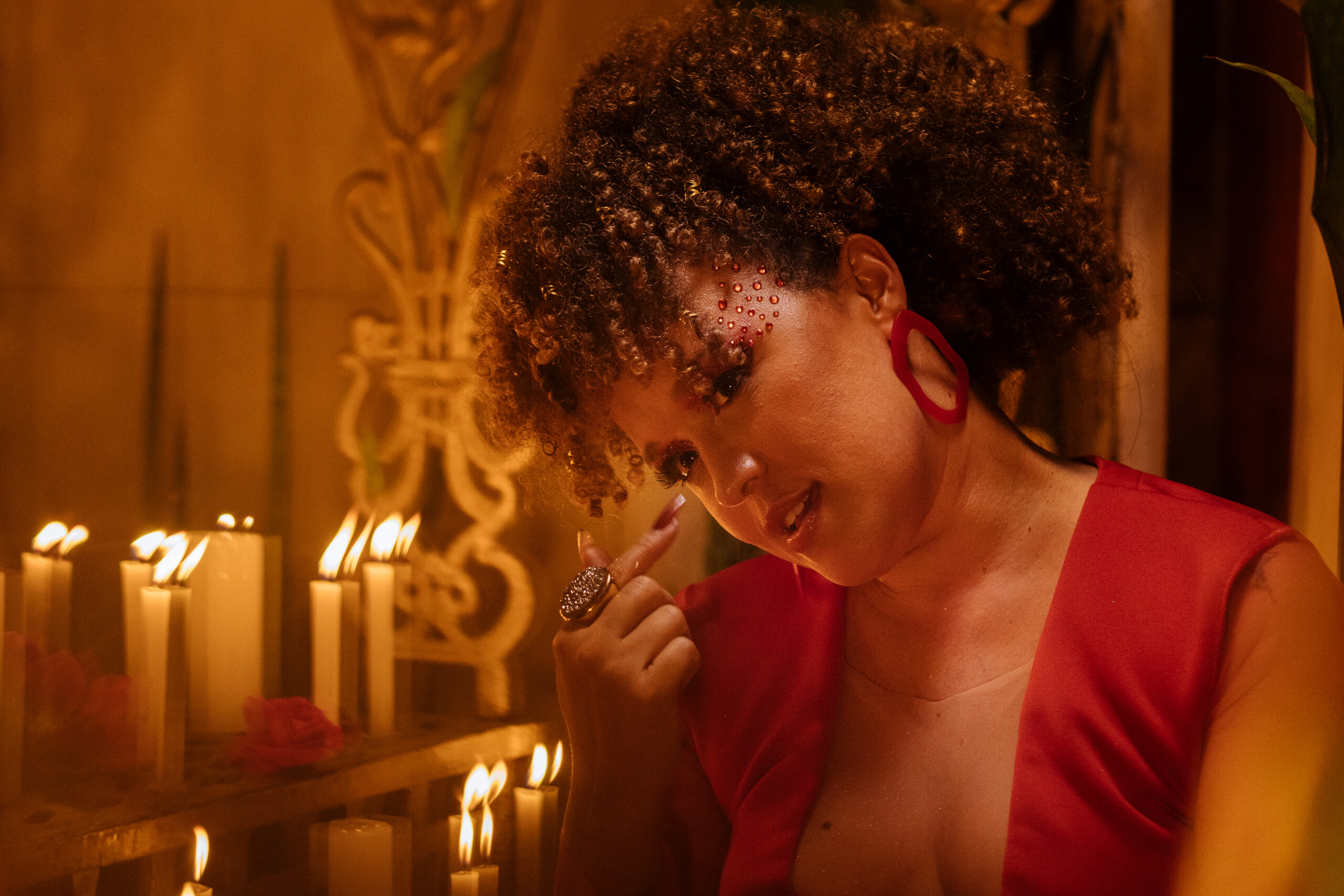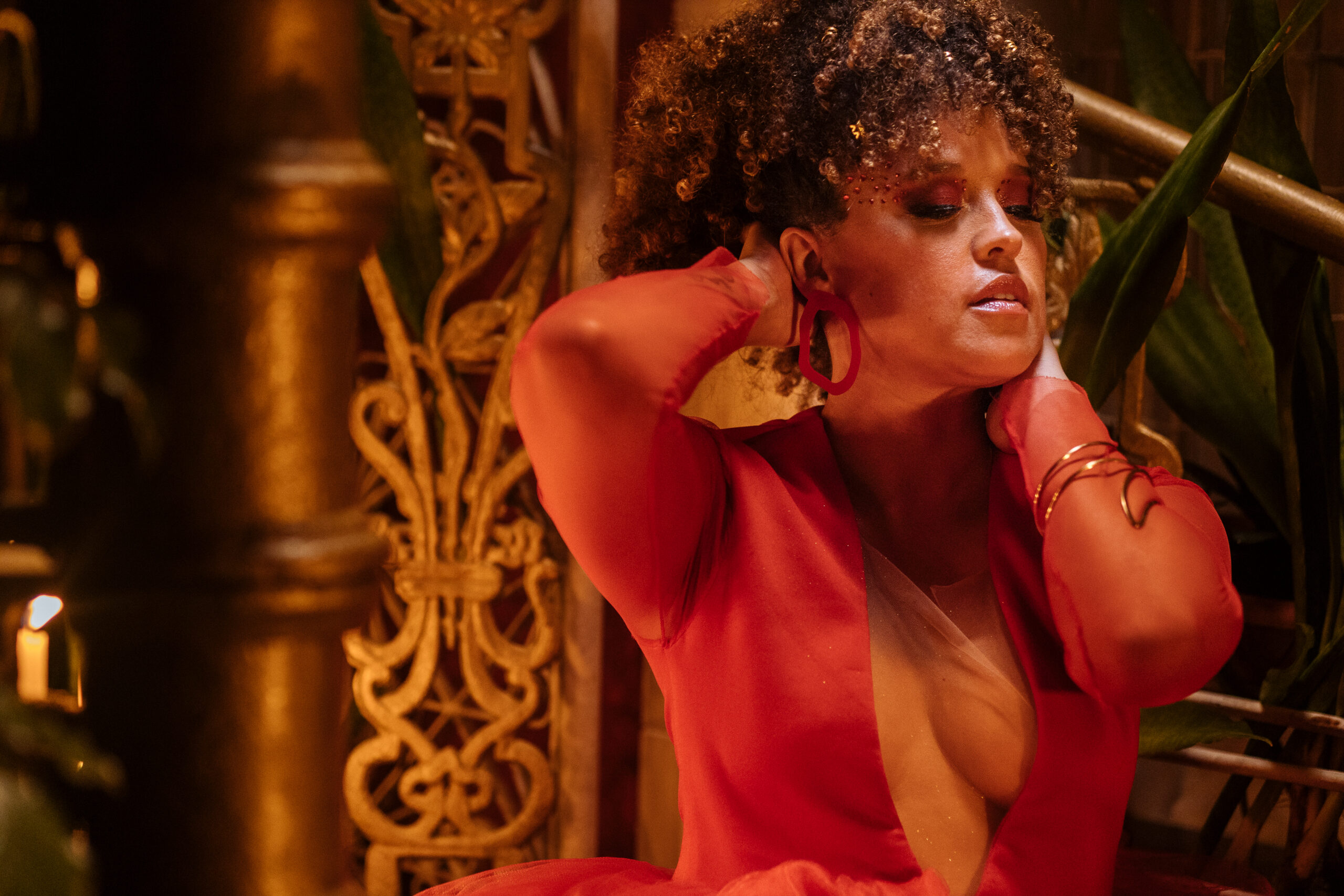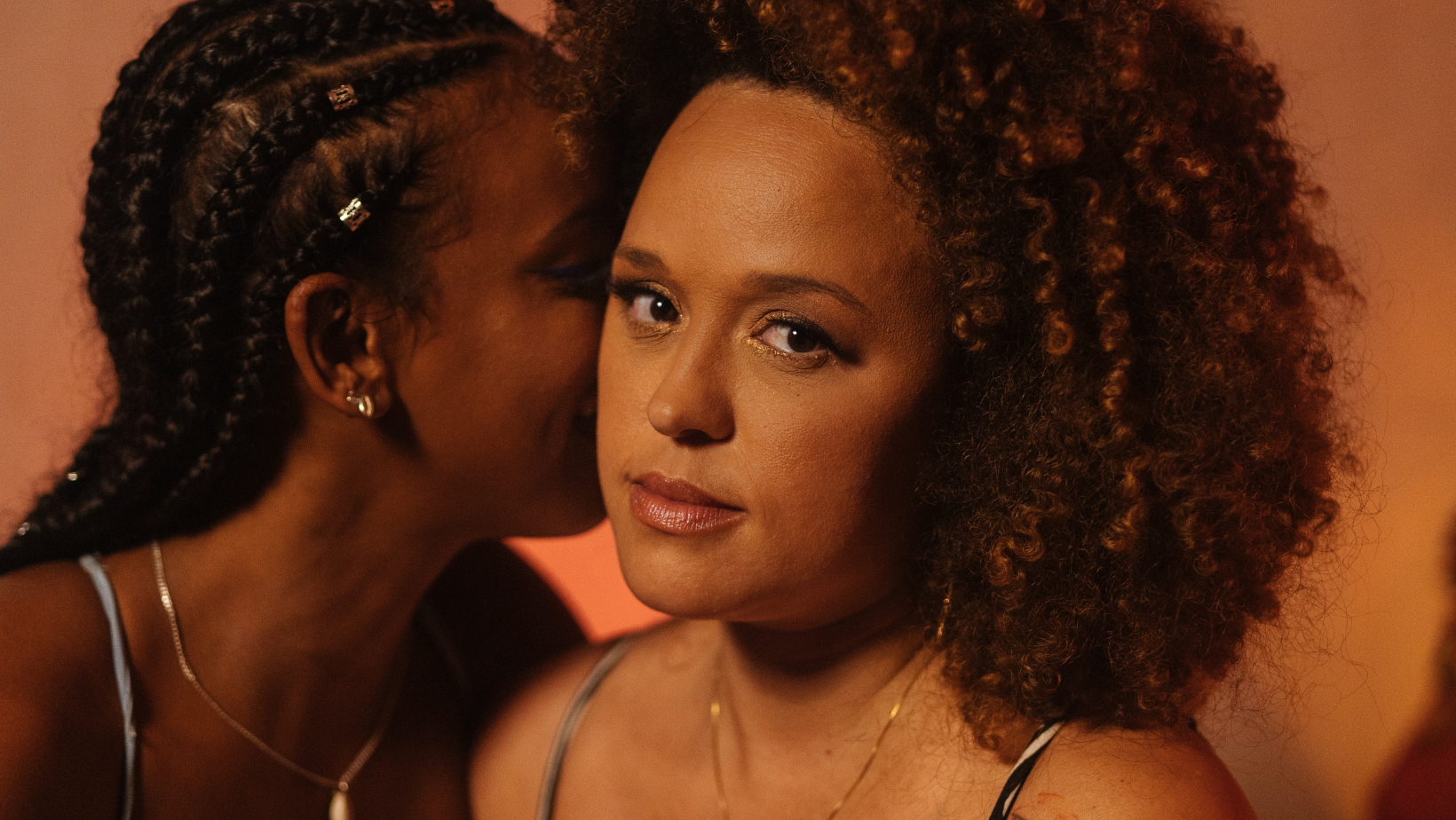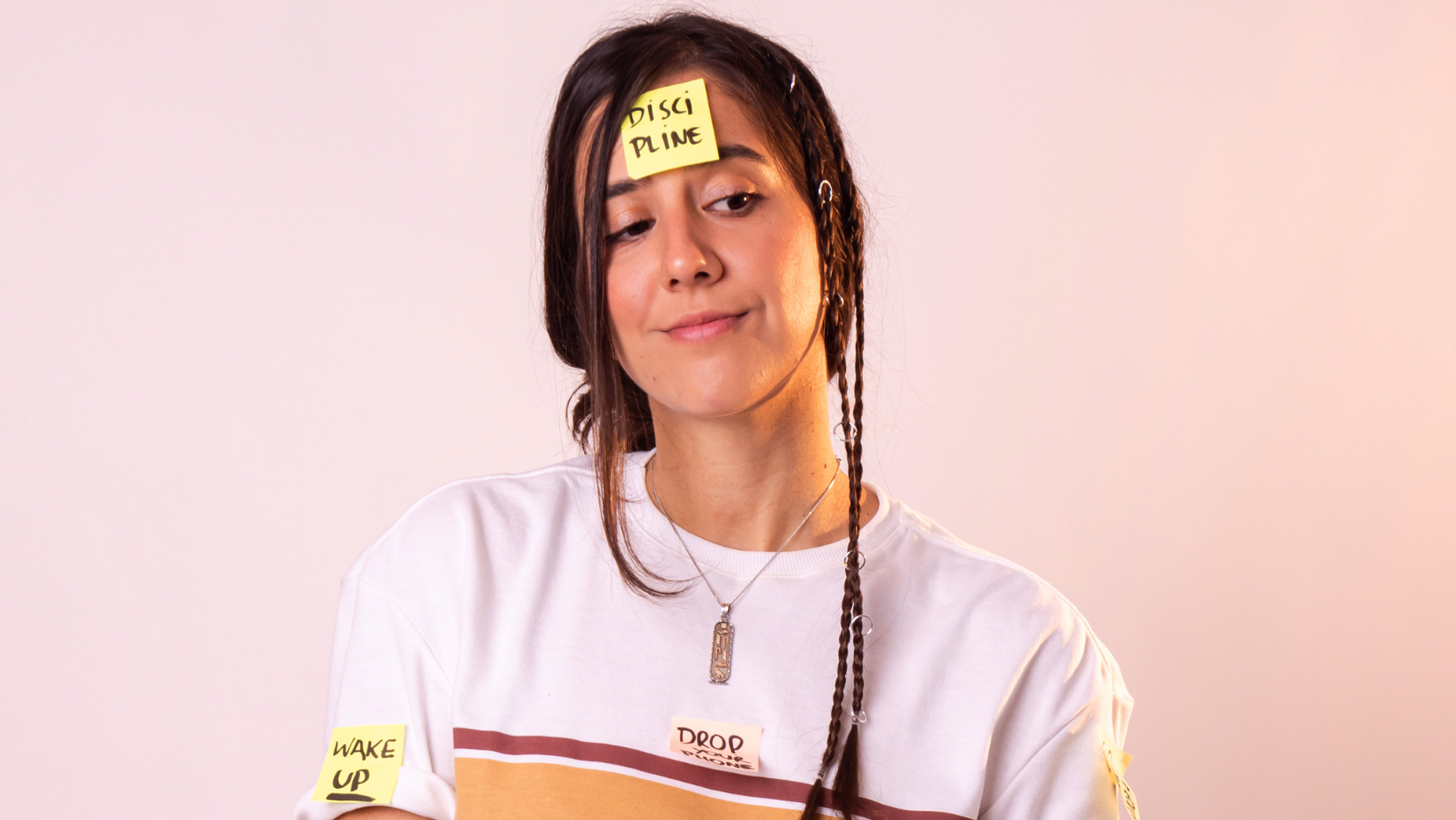Singer Nathalia Bellar releases the track “Deixa eu Colar,” a celebration of Latin identity, free love, and the power of the sacred feminine. In collaboration with Guga Limeira and Carol Jongo, and with musical production by Hugo Limeira, the song combines Afro-Latin and Northeastern influences, reflecting a sound mosaic characteristic of New MPB. With lyrics that explore the romance between two women and the power of the sacred feminine, the release is marked by a vibrant music video, filmed in Olinda and João Pessoa, and celebrates the artist’s 18-year career. Nathalia uses her music to connect with her identity and ancestry, highlighting the transformative power of art.
What inspired the incorporation of Afro-Latin and Northeastern influences into your new track, and how do you believe they contribute to your musical identity?
I am a northeastern artist, born in Paraíba to Jackson do Pandeiro and Vó Mera, exponents of popular culture who have always enchanted me. I also drink from the Pernambuco source of Lia de Itamaracá and Cordel do Fogo Encantado.
I envisioned creating a sound that could bring these influences together with the Afro-Latin references that have influenced me most in recent years. These are inspirations that came from my personal background. I remember, for example, listening to boleros with my grandfather when I was a child. And being enchanted by MTV pop music in the 1990s. It makes a lot of sense for me to bring this fusion to this new work, where I show myself much more fully, without constraints and with the freedom to explore sounds and aesthetics that have made me the singer that I am.
How was the collaborative process with Guga Limeira and Carol Jongo in the creation of “Deixa eu Colar”? What were each of your biggest contributions to the development of the song?
Guga and Carol are two friends that music has given me. They are artists with whom I compose a lot. The song began to emerge from my conversations with Guga about the aesthetics of my new work. We were focusing on this theme of Afro-Latinity , wanting to tell stories about our daily lives, talk about love and its plurality. He started writing “Deixa eu Colar” based on this theme. At the same time, Carol and I were writing another love song called “Pedacinho de mar”. I sent it to Guga to listen to. He fell in love with some of the verses and borrowed them to finish “Deixa eu Colar”. That’s the magic of composing together! The songs embrace each other, transforming into others. It’s an inexhaustible source of possibilities.
You mentioned that your heart was heading towards a more sunny and danceable phase. How do you think this change of direction reflects on your evolution as an artist over the years?
Art is changeable, just as we are changeable, essentially cyclical beings. And my music has always been an extension of who I am. This shift to a more sunny and danceable phase reflects not only my search for new artistic paths, but also my moment as a person. Throughout these years of my career, I have gone through different phases, explored more introspective emotions and rhythms. Now I feel that I am in a place of greater lightness and celebration.
New sounds, new audiences, new markets, greater reach. I am embracing other ways of expressing my truths, without leaving aside the roots of Brazilian popular music that formed me, but allowing myself to experiment more. I think this creative freedom is part of maturing and I am very happy to be able to share this.

The lyrics of “Deixa eu Colar” address the romantic encounter between two black women. What message do you hope listeners take away from this representation and how does it connect with the power of the sacred feminine?
The lyrics talk about desire, about passion, about the power to go after what you want, and, above all, about loving who you want. What I would like the public to be able to absorb from this message is that there is nothing more precious than our freedom. And, in a Brazil that continues to kill black and LGBT people , addressing love in all its layers, in all its possibilities, through a playful, fun, sensual perspective, aims to break down some of the walls that still separate us. Female freedom has always been a distant reality. Despite so many who came before us paving the way for enlightenment, the fight remains more alive than ever! I grew up surrounded by strong, feline black women. My mother, my aunts, my grandmothers, very powerful matriarchs. I always saw them going after what they wanted. The leaders of their families. And talking about free women who want themselves, who desire themselves and seek themselves is talking about the sacred. The sacred is also in the colors we use, in that red of Oiá, in the gold of Aphrodite. I often say that we are all this goddess that the lyrics highlight, driven by the instinct that motivates us to transform the world around us.
The music video for the song was filmed in iconic locations such as Olinda and João Pessoa. How did the choice of these locations and the aesthetics of the video help convey the energy and message of the song?
The song already has very visual elements in its poetry. In one of the passages, it talks about the heat of “eighty carnivals”. It brings a glimpse of this northeast where it is hot practically all year round, where carnival takes place in the streets and lovers leave their homes to dance. So, the choice of Olinda came from this tropical and carnivalesque energy. Its hills, the colors of its mansions, everything formed a perfect backdrop for those two characters to inhabit. The encounter of the sacred with the profane, of the modern with the ancient. The scenes of the goddess reflect a more nocturnal and bohemian atmosphere. So we thought of the Historic Center of João Pessoa, a stage for independent music and large gatherings. It was also a way to create even more connection between the cities that have a lot in common, separated by only 1h30min of distance. Obailê Santana, the actress who acts alongside me, is my neighbor from Pernambuco. Everything connects. We found the perfect visual for the atmosphere of magic and warmth that the song called for.
You mentioned that the music video was mostly produced by women. How did this approach impact the outcome and your view on female representation in the music industry?
I have always had women in different areas of my work, since the beginning of my career. As I said before, I grew up in an environment with a lot of female leadership. So, for me, this is something natural. It was no different with Deixa Eu Colar. The entire creative process, all the aesthetic constructions, logistics, the execution itself, were done by women with whom I work. And I am extremely pleased to be able to share their multiple talents. I believe that this is a differentiator. Women who work on several fronts. We can, with a small team, do great things. And I think it could not be any different. It had to be with them, because only they would be able to translate the dimension of this work, understand the importance of what was being addressed there. I believe that we are following a very beautiful path of occupying new spaces. A while ago, it was very difficult to see a woman as a sound technician, lighting technician, or sound engineer in studios. But today we already find them occupying these spaces. My feeling is that women are already transforming the music industry for the better.

How has your 18-year career journey influenced the creation of “Deixa eu Colar” and what does this release represent for you in terms of personal and artistic fulfillment?
These 18 years have given me maturity and experience, especially in terms of knowing more clearly what I want to say and how I want to say it. I believe that this was fundamental in the process of this production because I was now much more confident in choosing my team, in leading the general direction of the project in a more assertive way, in managing crises. Experience really improves us.
The release of this song represents exactly this new moment, where I feel freer to experiment with new sounds, to engage with a younger audience, without abandoning my base, and above all, it represents movement, brings new possibilities for expansion, to burst bubbles and take the work further.
You’ve talked about how art and music have helped you reconnect with your Blackness and ancestry. How do you hope your music continues to foster that connection and inspire others to explore their own identity?
I believe that any artistic expression is born from the desire to express our truths, to bring to light things that society often steals from us. Music revealed this to me. But it took a process for me to understand all of this, and I found many of the answers in the voices that were exponents for me, such as Elza Soares, Nina Simone and Vanessa da Mata, for example. Just as these artists were for me, I want to be a channel of empowerment for people who, even in these new generations, still feel ashamed of who they are. I want to speak naturally about my way of loving, about my skin, about the pride I feel in having been born in this region that is so fruitful, so powerful and historically so discriminated against. And I want my songs to speak to people, looking them in the eye. I want them to be able to translate many of the things they would like to say.
Follow Nathalia Bellar on Instagram





